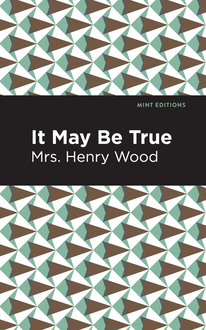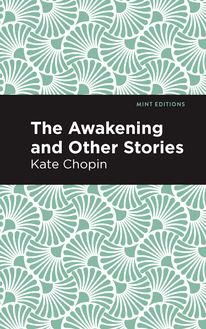-
 Univers
Univers
-
 Ebooks
Ebooks
-
 Livres audio
Livres audio
-
 Presse
Presse
-
 Podcasts
Podcasts
-
 BD
BD
-
 Documents
Documents
-
- Cours
- Révisions
- Ressources pédagogiques
- Sciences de l’éducation
- Manuels scolaires
- Langues
- Travaux de classe
- Annales de BEP
- Etudes supérieures
- Maternelle et primaire
- Fiches de lecture
- Orientation scolaire
- Méthodologie
- Corrigés de devoir
- Annales d’examens et concours
- Annales du bac
- Annales du brevet
- Rapports de stage
La lecture à portée de main
Vous pourrez modifier la taille du texte de cet ouvrage
Découvre YouScribe en t'inscrivant gratuitement
Je m'inscrisDécouvre YouScribe en t'inscrivant gratuitement
Je m'inscrisEn savoir plus
Vous pourrez modifier la taille du texte de cet ouvrage
En savoir plus

Description
Indiana, a young woman stuck in a loveless marriage, is seduced by a charming neighbor who is not as polished and pure as he appears. She embarks on a journey to find real love, leading to an unexpected discovery about the object of her affection.
Indiana is a young woman from French Louisiana who’s married to the much older Colonel Delmare. Their union is strict and often oppressive, leaving her unfulfilled. Indiana shares their home with her cousin Ralph and her loyal maid, Noun. One evening they encounter a handsome young man, Raymon de Ramière, who becomes interested in Indiana. Yet, prior to their meeting, Raymon had already seduced Noun who is pregnant with his child. This complicated dynamic forces Indiana to decide what she really wants: passion or stability?
Indiana is a bold commentary on the institution of marriage in France. It examines the implied gender roles and responsibilities pushed upon women. Sand champions the need for passion and true love, regardless of social convention.
With an eye-catching new cover, and professionally typeset manuscript, this edition of Indiana is both modern and readable.
Sujets
Informations
| Publié par | Mint Editions |
| Date de parution | 16 février 2021 |
| Nombre de lectures | 4 |
| EAN13 | 9781513284545 |
| Langue | English |
| Poids de l'ouvrage | 2 Mo |
Informations légales : prix de location à la page 0,0500€. Cette information est donnée uniquement à titre indicatif conformément à la législation en vigueur.
Extrait
Indiana
George Sand
Indiana was first published in 1832.
This edition published by Mint Editions 2021.
ISBN 9781513279527 | E-ISBN 9781513284545
Published by Mint Editions ®
minteditionbooks.com
Publishing Director: Jennifer Newens
Design & Production: Rachel Lopez Metzger
Project Manager: Micaela Clark
Typesetting: Westchester Publishing Services
C ONTENTS I NTRODUCTION P ART F IRST I II III IV V VI VII VIII P ART S ECOND IX X XI XII XIII XIV XV XVI P ART T HIRD XVII XVIII XIX XX XXI XXII XXIII XXIV P ART F OURTH XXV XXVI XXVII XXVIII XXIX XXX C ONCLUSION
I NTRODUCTION
I wrote Indiana during the autumn of 1831. It was my first novel; I wrote it without any fixed plan, having no theory of art or philosophy in my mind. I was at the age when one writes with one’s instincts, and when reflection serves only to confirm our natural tendencies. Some people chose to see in the book a deliberate argument against marriage. I was not so ambitious, and I was surprised to the last degree at all the fine things that the critics found to say concerning my subversive purposes. Criticism is far too acute; that is what will cause its death. It never passes judgment ingenuously on what has been done ingenuously. It looks for noon at four o’clock, as the old women say, and must cause much suffering to artists who care more for its decrees than they ought to do.
Under all r é gimes and in all times there has been a race of critics, who, in contempt of their own talent, have fancied that it was their duty to ply the trade of denouncers, of purveyors to the prosecuting attorney’s office; extraordinary functions for men of letters to assume with regard to their confr è res! The rigorous measures of government against the press never satisfy these savage critics. They would have them directed not only against works but against persons as well, and, if their advice were followed, some of us would be forbidden to write anything whatsoever.
At the time that I wrote Indiana , the cry of Saint Simonism was raised on every pretext. Later they shouted all sorts of other things. Even now certain writers are forbidden to open their mouths, under pain of seeing the police agents of certain newspapers pounce upon their work and hale them before the police of the constituted powers. If a writer puts noble sentiments in the mouth of a mechanic, it is an attack on the bourgeoisie; if a girl who has gone astray is rehabilitated after expiating her sin, it is an attack on virtuous women; if an impostor assumes titles of nobility, it is an attack on the patrician caste; if a bully plays the swashbuckling soldier, it is an insult to the army; if a woman is maltreated by her husband, it is an argument in favor of promiscuous love. And so with everything. Kindly brethren, devout and generous critics! What a pity that no one thinks of creating a petty court of literary inquisition in which you should be the torturers! Would you be satisfied to tear the books to pieces and burn them at a slow fire, and could you not, by your urgent representations, obtain permission to give a little taste of the rack to those writers who presume to have other gods than yours?
Thank God, I have forgotten the names of those who tried to discourage me at my first appearance, and who, being unable to say that my first attempt had fallen completely flat, tried to distort it into an incendiary proclamation against the repose of society. I did not expect so much honor, and I consider that I owe to those critics the thanks which the hare proffered the frogs, imagining from their alarm that he was entitled to deem himself a very thunderbolt of war.
G EORGE S AND
PART FIRST
I
O n a certain cool, rainy evening in autumn, in a small ch â teau in Brie, three pensive individuals were gravely occupied in watching the wood burn on the hearth and the hands of the clock move slowly around the dial. Two of these silent guests seemed to give way unreservedly to the vague ennui that weighed upon them; but the third gave signs of open rebellion: he fidgeted about on his seat, stifled half audibly divers melancholy yawns, and tapped the snapping sticks with the tongs, with a manifest intention of resisting the common enemy.
This person, who was much older than the other two, was the master of the house, Colonel Delmare, an old warrior on half-pay, once a very handsome man, now over-corpulent, with a bald head, gray moustache and awe-inspiring eye; an excellent master before whom everybody trembled, wife, servants, horses and dogs.
At last he left his chair, evidently vexed because he did not know how to break the silence, and began to walk heavily up and down the whole length of the salon, without laying aside for an instant the rigidity which characterizes all the movements of an ex-soldier, resting his weight on his loins and turning the whole body at once, with the unfailing self-satisfaction peculiar to the man of show and the model officer.
But the glorious days had passed, when Lieutenant Delmare inhaled triumph with the air of the camps; the retired officer, forgotten now by an ungrateful country, was condemned to undergo all the consequences of marriage. He was the husband of a young and pretty wife, the proprietor of a commodious manor with its appurtenances, and, furthermore, a manufacturer who had been fortunate in his undertakings; in consequence whereof the colonel was ill-humored, especially on the evening in question; for it was very damp, and the colonel had rheumatism.
He paced gravely up and down his old salon, furnished in the style of Louis XV, halting sometimes before a door surmounted by nude Cupids in fresco, who led in chains of flowers well-bred fawns and good-natured wild boars; sometimes before a panel overladen with paltry, over-elaborated sculpture, whose tortuous vagaries and endless intertwining the eye would have wearied itself to no purpose in attempting to follow. But these vague and fleeting distractions did not prevent the colonel, whenever he turned about, from casting a keen and searching glance at the two companions of his silent vigil, resting upon them alternately that watchful eye which for three years past had been standing guard over a fragile and priceless treasure, his wife.
For his wife was nineteen years of age; and if you had seen her buried under the mantel of that huge fire-place of white marble inlaid with burnished copper; if you had seen her, slender, pale, depressed, with her elbow resting on her knee, a mere child in that ancient household, beside that old husband, like a flower of yesterday that had bloomed in a gothic vase, you would have pitied Colonel Delmare’s wife, and the colonel even more perhaps than his wife.
The third occupant of this lonely house was also sitting under the same mantel, at the other end of the burning log. He was a man in all the strength and all the bloom of youth, whose glowing cheeks, abundant golden hair and full whiskers presented a striking contrast to the grizzly hair, weather-beaten complexion and harsh countenance of the master of the house; but the least artistic of men would none the less have preferred Monsieur Delmare’s harsh and stern expression to the younger man’s regular but insipid features. The bloated face carved in relief on the sheet of iron that formed the back of the fire-place, with its eye fixed constantly on the burning logs, was less monotonous perhaps than the pink and white fair-haired character in this narrative, absorbed in like contemplation. However, his strong and supple figure, the clean-cut outline of his brown eyebrows, the polished whiteness of his forehead, the tranquil expression of his limpid eyes, the beauty of his hands, and even the rigorously correct elegance of his hunting costume, would have caused him to be considered a very comely cavalier in the eyes of any woman who had conceived a passion for the so-called philosophic tastes of another century. But perhaps Monsieur Delmare’s young and timid wife had never as yet examined a man with her eyes; perhaps there was an entire absence of sympathy between that pale and unhappy woman and that sound sleeper and hearty eater. Certain it is that the conjugal Argus wearied his hawklike eye without detecting a glance, a breath, a palpitation, between these two very dissimilar beings. Thereupon, being assured that he had not the slightest pretext for jealousy to occupy his mind, he relapsed into a state of depression more profound than before, and abruptly plunged his hands into his pockets.
The only cheerful and attractive face in the group was that of a beautiful hunting dog, of the large breed of pointers, whose head was resting on the knees of the younger man. She was remarkable by reason of her long body, her powerful hairy legs, her muzzle, slender as a fox’s, and her intelligent face, covered with disheveled hair, through which two great tawny eyes shone like topazes. Those dog’s eyes, so fierce and threatening during the chase, had at that moment an indefinable expression of affectionate melancholy; and when her master, the object of that instinctive love, sometimes so superior to the deliberate affection of man, ran his fingers through the beautiful creature’s silky silver locks, her eyes sparkled with pleasure, while her long tail swept the hearth in regular cadence, and scattered the ashes over the inlaid floor.
It was a fitting subject for Rembrandt’s brush, that interior, dimly lighted by the fire on the hearth. At intervals fugitive white gleams lighted up the room and the faces, then, changing to the red tint of the embers, gradually died away; the gloom of the salon varying as the fitful gleams grew more or less dull. Each time that Monsieur Delmare passed in front of the fire, he suddenly appeared, like a ghost, then vanished in the mysterious depths of the salon. Strips of gilding stood forth in the light now and then on the oval frames, adorned wi
-
 Univers
Univers
-
 Ebooks
Ebooks
-
 Livres audio
Livres audio
-
 Presse
Presse
-
 Podcasts
Podcasts
-
 BD
BD
-
 Documents
Documents
-
Jeunesse
-
Littérature
-
Ressources professionnelles
-
Santé et bien-être
-
Savoirs
-
Education
-
Loisirs et hobbies
-
Art, musique et cinéma
-
Actualité et débat de société
-
Jeunesse
-
Littérature
-
Ressources professionnelles
-
Santé et bien-être
-
Savoirs
-
Education
-
Loisirs et hobbies
-
Art, musique et cinéma
-
Actualité et débat de société
-
Actualités
-
Lifestyle
-
Presse jeunesse
-
Presse professionnelle
-
Pratique
-
Presse sportive
-
Presse internationale
-
Culture & Médias
-
Action et Aventures
-
Science-fiction et Fantasy
-
Société
-
Jeunesse
-
Littérature
-
Ressources professionnelles
-
Santé et bien-être
-
Savoirs
-
Education
-
Loisirs et hobbies
-
Art, musique et cinéma
-
Actualité et débat de société
- Cours
- Révisions
- Ressources pédagogiques
- Sciences de l’éducation
- Manuels scolaires
- Langues
- Travaux de classe
- Annales de BEP
- Etudes supérieures
- Maternelle et primaire
- Fiches de lecture
- Orientation scolaire
- Méthodologie
- Corrigés de devoir
- Annales d’examens et concours
- Annales du bac
- Annales du brevet
- Rapports de stage



















